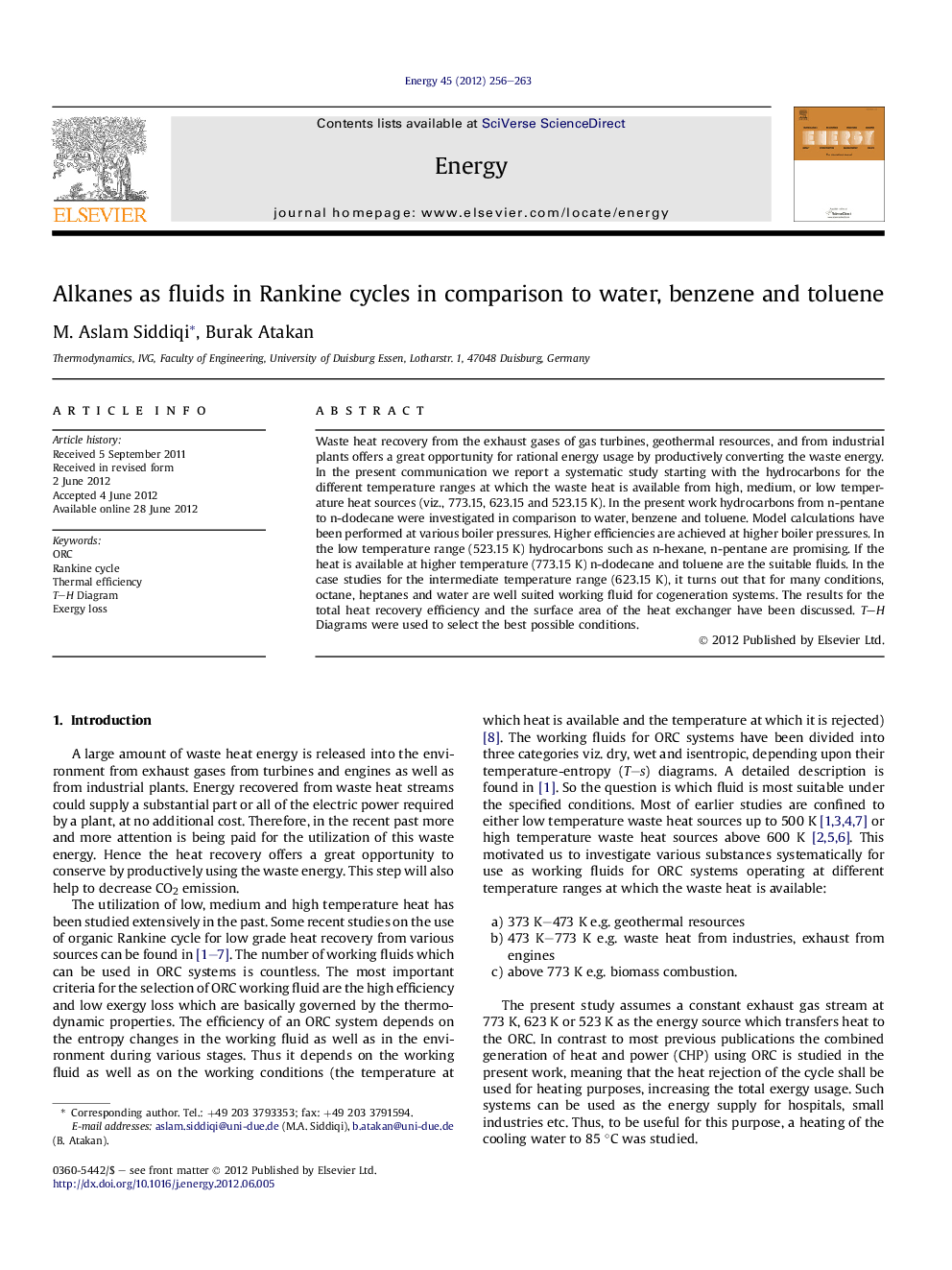| Article ID | Journal | Published Year | Pages | File Type |
|---|---|---|---|---|
| 1733669 | Energy | 2012 | 8 Pages |
Waste heat recovery from the exhaust gases of gas turbines, geothermal resources, and from industrial plants offers a great opportunity for rational energy usage by productively converting the waste energy. In the present communication we report a systematic study starting with the hydrocarbons for the different temperature ranges at which the waste heat is available from high, medium, or low temperature heat sources (viz., 773.15, 623.15 and 523.15 K). In the present work hydrocarbons from n-pentane to n-dodecane were investigated in comparison to water, benzene and toluene. Model calculations have been performed at various boiler pressures. Higher efficiencies are achieved at higher boiler pressures. In the low temperature range (523.15 K) hydrocarbons such as n-hexane, n-pentane are promising. If the heat is available at higher temperature (773.15 K) n-dodecane and toluene are the suitable fluids. In the case studies for the intermediate temperature range (623.15 K), it turns out that for many conditions, octane, heptanes and water are well suited working fluid for cogeneration systems. The results for the total heat recovery efficiency and the surface area of the heat exchanger have been discussed. T–H Diagrams were used to select the best possible conditions.
► Rankine cycle processes using alkanes, aromatics and water for waste heat recovery at 500, 350 and 250 °C. ► Model calculations show higher efficiencies at higher boiler pressures. ► Toluene and higher alkanes perform better for heat recovery at higher temperatures. ► Lower alkanes perform better for heat recovery at low temperatures.
